| "The governors have about a month to get ready." -- Former FDA Commissioner Dr. Scott Gottlieb on next challenges of getting vaccines to communities
Welcome to the "Face the Nation" Five at Five newsletter. Scroll down for your five takeaways from today's broadcast with moderator Margaret Brennan on CBS. Did someone forward you this? Sign-up at cbsnews.com/email. 1. Azar: Vaccine for nursing homes date just a "misunderstanding" 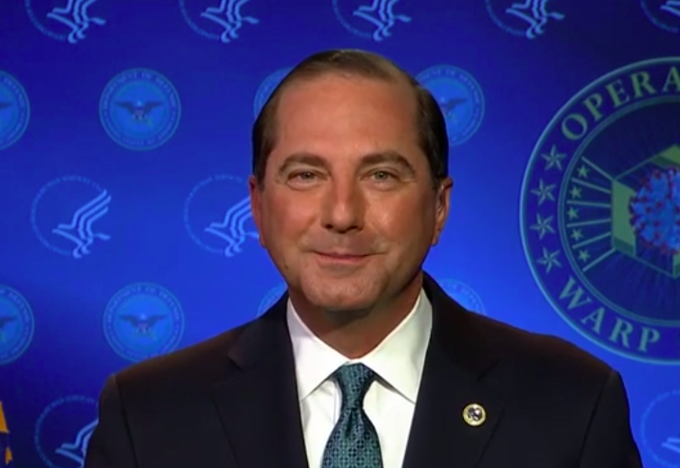 With the first shipments of a coronavirus vaccine developed by Pfizer and German partner BioNTech now making their way to states, Health and Human Services Secretary Alex Azar predicted Sunday that all nursing home residents could be vaccinated by the Christmas holiday. His comments, however, contradict what CVS Health has stated is the date they intend to roll out the vaccine. What we asked: Why is the Trump administration asking nursing homes to wait? What Azar said: "we're not actually asking the nursings- nursing homes to wait. And we were able to have a really good discussion with CVS leadership about this misunderstanding that they had at the president's vaccine distribution summit. So I think we've gotten that all straightened out with them. And we'll be getting CVS and Walgreens vaccinating our nursing home people. A hundred- almost 100% of our nursing homes have signed up with that program for a turnkey vaccination operation..The vaccines are going out as soon as they receive the vaccine. This is according to the governors telling us to ship to them, we could have every nursing home patient vaccinated in the United States by Christmas. It's really a remarkable, remarkable prospect for all of us who have loved ones in nursing homes to- that we may approach Christmas with that level of comfort that- that our- that our loved ones have gotten some initial protection already." Why it matters: As Margaret Brennan reports , CBS News has since obtained two Operation Warp Speed documents produced by the Department of Health and Human Services (HHS) with guidance for CVS and Walgreens, the pharmacy partners charged with carrying out the vaccination of residents at long-term care facilities. HHS explicitly instructs providers that the "earliest the program can turn on is Dec 21st," referring to administering the Pfizer vaccine. The rate of infection at nursing homes has been spiking in recent weeks, which makes that a potentially costly delay. On "Face the Nation" on Sunday, Health and Human Services Secretary Alex Azar described the rollout as a "turnkey vaccination" effort and denied delaying the start date for long-term care facilities. 2. Gottlieb says strain on hospitals likely to peak in January 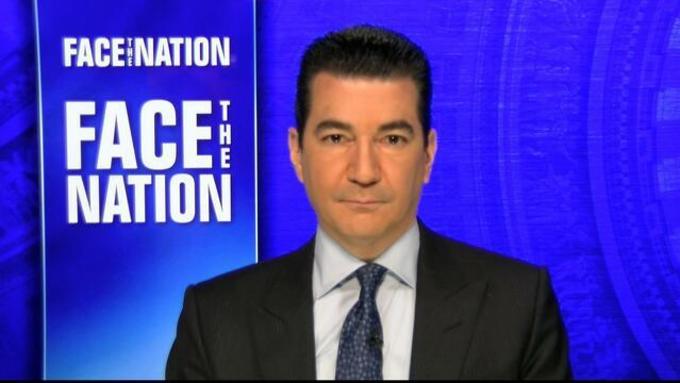 Former Food and Drug Administration Commissioner Dr. Scott Gottlieb warned Sunday that coronavirus infections are likely to peak in January with the hospital system experiencing strains for several weeks after, as Americans gather to celebrate the holidays with their families despite predictions from public health officials of a difficult winter. What we asked: How do you save lives at this point? What Gottlieb said: "The pressure is going to be on the healthcare system, and we need to keep the healthcare system from getting maxed out. They're not going to see peak burden on hospital resources probably until mid January, late January. You are seeing some hopeful signs around the nation in terms of a slowing of new cases in the Midwest and the West in particular. But, you're seeing an acceleration in cases in the East Coast and the West Coast. So, the entire country isn't going through this pandemic at the same time. New York, California, were a little later to have an acceleration in cases. So, they're going to be later to peak. We are seeing some signs that there is a slowing of new cases in the parts of the country that were hit hardest the first, which is particularly the Midwest and the West. So, cases are likely to continue to increase through the end of December into early January. We're likely to see a peak at some point in January, but the burden on the hospital system is going to continue for another three weeks past that." Why it matters: The nation is experiencing another surge of coronavirus infections, with cases surpassing 16 million in the U.S. and the number of deaths nearing 300,000, according to Johns Hopkins University. In anticipation of a spike in cases stemming from the holidays, public health officials urged Americans before Thanksgiving and now Christmas to forgo their usual celebrations in favor of scaled-down gatherings. 3. Richmond: GOP lawmakers privately acknowledge Trump lost 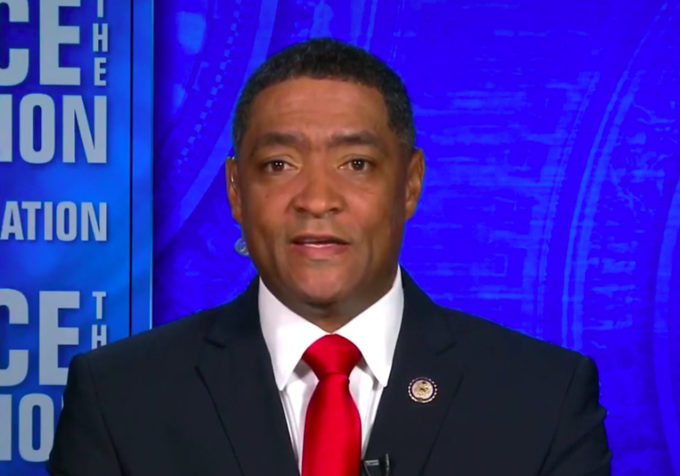 Despite more than 100 House Republicans publicly lining up behind President Trump in his failed attempt to overturn the results of the presidential election, Congressman Cedric Richmond, a Democrat from Louisiana who will join the White House as a senior adviser to President-elect Joe Biden, said GOP lawmakers acknowledge behind closed doors that Mr. Trump lost the presidency. What we asked: If two thirds of the Republican conference doesn't recognize Joe Biden's victory as the president-elect, how can you do business with them? What Richmond said: "I talk to Republican members of Congress all the time, and they say one thing privately, they say another thing publicly. But the one thing I will tell you is they realize he lost this election." Why it matters: Last week, Texas Attorney General Ken Paxton filed a lawsuit directly with the Supreme Court against four states Mr. Biden won - Michigan, Wisconsin, Pennsylvania and Georgia -- that sought to delay the December 14 deadline for the Electoral College to meet and block the states from certifying their presidential electors or having them cast their votes for president in the Electoral College. The president attempted to join the lawsuit with Texas, and 106 House Republicans signed a friend-of-the-court brief in support of Paxton's bid. But on Friday, the Supreme Court rebuffed the attempt by Texas to block the four states' electors from voting in the Electoral College, delivering a fatal blow to Mr. Trump and his allies. Despite their backing for the president in his failed attempt to overturn the results of the election, Richmond said Republicans recognize Mr. Biden's victory. 4. New Jersey hospital CEO: ICU's getting "stretched" 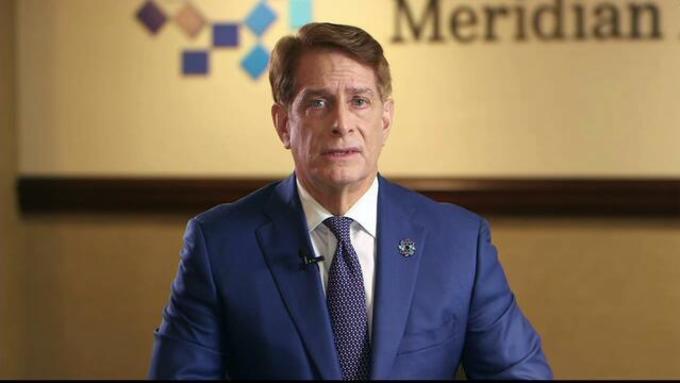 Robert Garrett, CEO of Hackensack Meridian Health, the largest health network in New Jersey, says ICU capacity is being stretched to its limits as COVID-19 cases continue to spike nationwide. What we asked: How is your medical staff holding up? What is ICU capacity like? What Garrett said : It's been- it's really been a long haul since- since the COVID-19 pandemic hit us in in March. As we speak this morning, we are taking care of about 900 COVID-19 patients. We've seen over 22,000 patients since the beginning of the pandemic. And just to put it in perspective, in the middle of April, when- when we were at peak, there were nearly 3,000 COVID-19 patients that we were treating. We- actually that number decreased to about 50 at the end of the summer, and we've seen a steady increase to 900. Our ICU capacity is- is getting stretched. We still have some capacity. We still have some medical surgical capacity, and capacity in our emergency departments. Our- our biggest challenge now, MARGARET, is staffing because, you know, in- during the first surge, we were able to source staff from literally around the nation. But as you've been reporting, there's a surge all over the country now. So it's much more difficult to supplement our regular staff with- with additional staff. Why it matters: Despite groundbreaking news of an imminent coronavirus vaccine rollout, the nation's health care system is continuing to be pushed to the brink as overwhelmed hospitals teeter at capacity. 5. Five @ 5 Exclusive: We asked a CDC Director about the vaccine 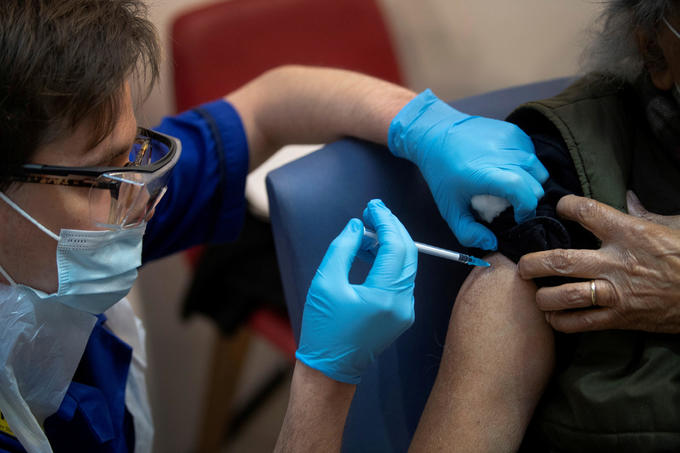 We interviewed former Acting CDC Director Dr. Richard Besser for his analysis on the coronavirus vaccine and eventual roll out. Read his full Q+A here. This week the FDA's advisory board approved for emergency use the COVID vaccine, and the FDA has since approved it. What should we expect the next few days to look like in terms of getting an injection to those who need it most? The Emergency Use Authorization for Pfizer's vaccine is a tremendous public health milestone. We have never developed a vaccine so quickly, and as the FDA's independent advisory board concluded, it is both effective and safe for most adults. The FDA's process was transparent and thorough, and we should all be grateful to the scientists who made this achievement possible. Over the coming days and weeks, the initial quantities of the vaccine will be delivered to states, territories, and tribal nations, and then onward to frontline healthcare workers and those who live and work in long-term care facilities such as nursing homes. The CDC's Advisory Committee on Immunization Practices (ACIP)--a nonpartisan, independent Federal Advisory Committee that includes some of the world's foremost medical and public health experts--recommended that those groups should receive the vaccine first. Now it is up to states to implement those recommendations to the best of their ability, with state and local public health departments being critical partners in that endeavor. It will be a massive undertaking and one that would benefit from additional federal funding to ensure vaccines are distributed and delivered as quickly and as safely as possible. Which groups should be targeted early for vaccination in order to yield the greatest impact on reducing new cases of COVID-19? We know frontline workers are first in line, but how should racial disparities and comorbidities play into states roll out plans? From the very beginning, Covid-19 has impacted some populations more severely than others. Black Americans, Hispanic Americans, and Native Americans have all disproportionately suffered the health and economic consequences of this pandemic. This virus has exposed an uncomfortable truth about life in America: people's ability to keep themselves and their families healthy is to a large degree determined by the color of their skin, where they live and how much money they have. That is simply unacceptable. The biggest factor driving this disparity is a difference in the risk of exposure. A greater proportion of people of color work in frontline jobs in healthcare, food service and production, and transportation. These jobs cannot be done remotely and they may lack financial resources to be able to stay home if ill or exposed. As a result, to the degree states are able to follow ACIP's recommendations, we should see the initial vaccine rollout helping those populations the most. But as we know, vaccine hesitancy is real and is greater among people of color. Building capacity to vaccinate and building trust must go hand in hand Should those who get vaccinated continue to practice mask-wearing and other COVID mitigation? It is essential that everyone wears a mask regardless of whether they have received a vaccine. We do not yet know whether vaccination will prevent someone from spreading the virus to others. Until that is known, we must encourage everyone to wear a mask when indoors or when outdoors and not able to keep six feet apart from others. Wearing masks must still be a part of our collective daily routine. Doing so can not only protect your health, but the health of your family, friends, and neighbors.
| 
No comments:
Post a Comment